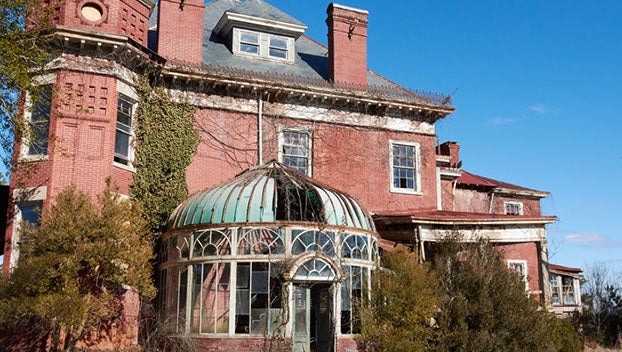Richard McClintock: Farmville, Prince Edward’s Lahaina is at hand
Published 12:00 pm Wednesday, September 6, 2023
|
Getting your Trinity Audio player ready...
|
Suddenly, after sitting on their property for decades, everybody in Farmville and Prince Edward County seems intent on selling off all the historic sites that make this area so special. Not only is the Dunnington mansion in danger, but also Willa Wood’s farm north of Walmart, a wonderful green space with potential tourism value, and — perhaps the most significant of the three — the Lithia Springs property, this part actually in the Cumberland side of town, which once made Farmville’s name famous around the world, even as its tobacco did.
I wish there were some way that the people and government in Farmville or Prince Edward County would realize that these properties are not just land available for yet another Dollar General, but that they have value above and beyond the real estate, value for the soul and identity of the whole area, not to mention the value of tourism appeal.
As a member of the County’s Tourism Council, I hear over and over again that we need more parks and trails, more museums, more landmarks, more wedding venues, more of anything which will appeal to a wider audience of tourists. All three of these properties certainly answer that demand and more, offering prime possibilities as tourist attractions — which is important because tourism is the fastest growing income producer in our community, especially in the areas of wedding and civil-rights tourism.
A WISH FOR LITHIA SPRINGS
I wish there were some way, for example, that the Lithia Springs property could be acquired by the town or even well-meaning private citizens, to become a park celebrating the industries which made Farmville what it is today.
The site includes the 1852 Thackston House, one of the few surviving witnesses to the Civil War’s impact on Farmville, which in its case included being hit by a cannonball; the white concrete-and-brick hoods over the famous springs themselves; traces of the roads which once led to the big hillside pavilion where Farmvillians once gathered to “take the waters,” dance, and socialize; and a rare surviving example of a company house, furnished by an industry for its African-American or white employees — which should be made a monument to the black workers, enslaved and free, who are ultimately the foundation of Farmville’s prosperity.
The Thackston house too could become an intimate historical museum, a memorial to all the industries that made Farmville what it is today. One room could display the Covington’s amazing collection of tools and information about the cultivation and manufacture of tobacco, which once carried Farmville’s and Prince Edward’s name around the world. Other rooms could celebrate the Lithia Springs themselves — whose acclaimed “chalybeate waters” were a popular tonic internationally, even winning awards at the great expositions of the day — and other industries, from plowshares to pianos, which once made Farmville famous.
The spring water bottles are still widely collected and books have been written about The Lithia Springs. This acreage particularly has significance beyond even the business it once contained. According to the Virginia Department of Historic Resources, it also held a rare early fully-integrated community, where black and white families lived together in order to process and package the water — something especially to be celebrated. It’s a site with statewide, even nationwide significance, both for its industrial history and as a symbol of racial harmony. There’s a good chance that anyone wishing to destroy such a property could be accused of racial insensitivity.
Willa Wood’s house and the fields around it, with the simple addition of a nice big Amish barn in the back and trails and hidden parking, would make an awesome park and wedding venue to replace the facility that we lost with the sale of the airport. (Wedding tourism is the fastest growing element of tourism in this area.) It would also preserve the last green space that prevents the southern entrance to Farmville from looking like any other anonymous Interstate exit.
LOOKING AT DUNNINGTON
Already an Internet sensation amongst fans of abandoned buildings, the Dunnington mansion might, sad to say, become as much of a tourist destination in its current condition as it would it be if it were ever restored — if only the current owners could be persuaded to sell its plot separately from the massive property around it. In either case it is too valuable to lose.
It also is a monument to positive race relations, with its inspiring stories about how well the generations of Woodsons, Dunningtons, and other families who ran that farm treated the people who famously “worked with them, not for them.”
What is the matter with us, that we are either so thoughtless of our history or so ashamed of it, that we should let it disappear under bulldozers, to be replaced by yet more Dollar Generals? Rise up, I say, and save it, for our own good.
RICHARD MCCLINTOCK is a former professor and publications director at Hampden-Sydney College, an architectural historian, and a member of the Prince Edward County Tourism Council. He can be reached at info@historic-models.com.



